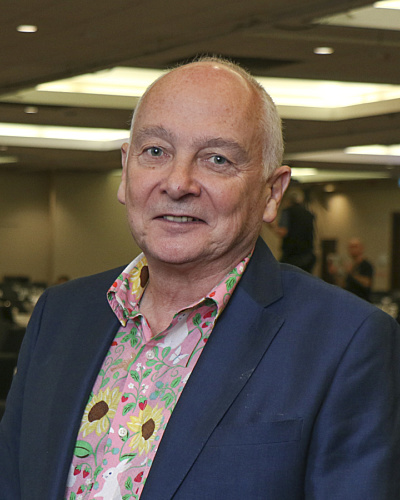Why Our Community is moving to a four-day week
Posted on 07 Jun 2022

Our Community is moving to a four-day week as part of its progressive commitment to work-life balance, becoming an employer of choice and testing the waters for the not-for-profits it serves.
It will be among the first workplaces in Australia to make the move, taking part in a global trial which started on Monday, June 6, 2022. Staff will not take pay cuts or work longer hours over fewer days, but instead will be asked to offset the changes with innovations, efficiencies and a clearer focus on the organisation's mission.
While other Australian organisations are starting their trials in August, Our Community is starting now, joining the world’s biggest pilot program alongside 70 UK companies and more than 3000 workers.
The six-month trial is overseen by 4 Day Week Global in partnership with leading think tank Autonomy, the 4 Day Week UK Campaign, and researchers at Cambridge University, Oxford University and Boston College.

Our Community group managing director Denis Moriarty said he was optimistic about the benefits of the trial.
“I’m not nervous that we’re kicking off our trial before anyone else – in fact I’ve never been more excited in my life.
“We’re starting now because it’s the perfect time. We’ve only just come out of the hardest two years of the pandemic, lockdowns and upended work practices, and we know we can learn from that.
“I know we can be more productive. I’ve got 193 pages of suggestions from my staff about how we can do things better, and I know for sure that this would not have happened if it weren’t for the fact that we are moving to a four-day week.
“These are visionary suggestions from every member of staff, wanting to contribute not only to Our Community, but to a way of living a better life.”
Would you like to work a four-day week? #9Today pic.twitter.com/PmSEMC04wu
— The Today Show (@TheTodayShow) June 9, 2022
In an Australian Financial Review article Moriarty said he did not expect staff to hit every mark straight away.
“Sure, the productivity gains might not happen overnight, but this is a long game and we’ll be able to keep and attract the best staff in an environment where people rightly expect a better work-life balance in exchange for their contribution.
He told The Age that the trial was “really about reassessing: How do we reinvent a workplace of the future?", saying it was also essential to ensure that the company was still profitable and effective.
“This can’t be a lifestyle at the expense of the business. We can’t drop 20 per cent of our turnover, we have to make that up in some way,” he told the publication.
He said that among initiatives to save time, Our Community would introduce automatic invoicing, reduce meeting times, restrict the number of people copied into emails and encourage staff to book non-urgent medical appointments on their day off. He said the company was also likely to mandate two days in which everyone worked in the office together.
“If we fail to maintain productivity at the levels required, then we have failed the four-day week pilot,” the implementation team declared in a communication to all staff ahead of the trial.
In a recent commentary in The Canberra Times, Moriarty said he would draw on lessons from the two years of upended work practices prompted by the pandemic.
“I don't think it's going to result in any significant productivity loss, partly because there are a lot of studies that say that, and partly because we've just gone through an exhaustive two-year global experiment to answer the question of whether people need moment-by-moment supervision to keep them up to the mark. When the results were tallied, we found that staff had worked from home perfectly satisfactorily.”